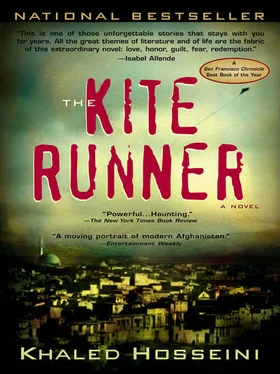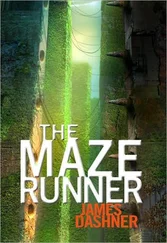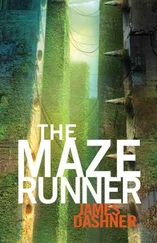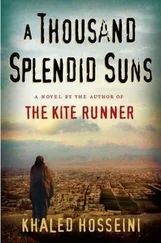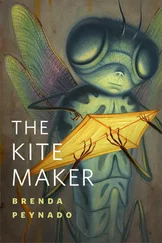GINGERLY, I WALKED up the driveway where tufts of weed now grew between the sun-faded bricks. I stood outside the gates of my father’s house, feeling like a stranger. I set my hands on the rusty bars, remembering how I’d run through these same gates thousands of times as a child, for things that mattered not at all now and yet had seemed so important then. I peered in.
The driveway extension that led from the gates to the yard, where Hassan and I took turns falling the summer we learned to ride a bike, didn’t look as wide or as long as I remembered it. The asphalt had split in a lightning-streak pattern, and more tangles of weed sprouted through the fissures. Most of the poplar trees had been chopped down – the trees Hassan and I used to climb to shine our mirrors into the neighbors’ homes. The ones still standing were nearly leafless. The Wall of Ailing Corn was still there, though I saw no corn, ailing or otherwise, along that wall now. The paint had begun to peel and sections of it had sloughed off altogether. The lawn had turned the same brown as the haze of dust hovering over the city, dotted by bald patches of dirt where nothing grew at all.
A jeep was parked in the driveway and that looked all wrong: Baba’s black Mustang belonged there. For years, the Mustang’s eight cylinders roared to life every morning, rousing me from sleep. I saw that oil had spilled under the jeep and stained the driveway like a big Rorschach inkblot. Beyond the jeep, an empty wheelbarrow lay on its side. I saw no sign of the rosebushes that Baba and Ali had planted on the left side of the driveway, only dirt that spilled onto the asphalt. And weeds.
Farid honked twice behind me. “We should go, Agha. We’ll draw attention,” he called.
“Just give me one more minute,” I said.
The house itself was far from the sprawling white mansion I remembered from my childhood. It looked smaller. The roof sagged and the plaster was cracked. The windows to the living room, the foyer, and the upstairs guest bathroom were broken, patched haphazardly with sheets of clear plastic or wooden boards nailed across the frames. The paint, once sparkling white, had faded to ghostly gray and eroded in parts, revealing the layered bricks beneath. The front steps had crumbled. Like so much else in Kabul, my father’s house was the picture of fallen splendor.
I found the window to my old bedroom, second floor, third window south of the main steps to the house. I stood on tiptoes, saw nothing behind the window but shadows. Twenty-five years earlier, I had stood behind that same window, thick rain dripping down the panes and my breath fogging up the glass. I had watched Hassan and Ali load their belongings into the trunk of my father’s car.
“Amir agha,” Farid called again.
“I’m coming,” I shot back.
Insanely, I wanted to go in. Wanted to walk up the front steps where Ali used to make Hassan and me take off our snow boots. I wanted to step into the foyer, smell the orange peel Ali always tossed into the stove to burn with sawdust. Sit at the kitchen table, have tea with a slice of naan , listen to Hassan sing old Hazara songs.
Another honk. I walked back to the Land Cruiser parked along the sidewalk. Farid sat smoking behind the wheel.
“I have to look at one more thing,” I told him.
“Can you hurry?”
“Give me ten minutes.”
“Go, then.” Then, just as I was turning to go: “Just forget it all. Makes it easier.”
“To what?”
“To go on,” Farid said. He flicked his cigarette out of the window. “How much more do you need to see? Let me save you the trouble: Nothing that you remember has survived. Best to forget.”
“I don’t want to forget anymore,” I said. “Give me ten minutes.”
WE HARDLY BROKE A SWEAT, Hassan and I, when we hiked up the hill just north of Baba’s house. We scampered about the hilltop chasing each other or sat on a sloped ridge where there was a good view of the airport in the distance. We’d watch airplanes take off and land. Go running again.
Now, by the time I reached the top of the craggy hill, each ragged breath felt like inhaling fire. Sweat trickled down my face. I stood wheezing for a while, a stitch in my side. Then I went looking for the abandoned cemetery. It didn’t take me long to find it. It was still there, and so was the old pomegranate tree.
I leaned against the gray stone gateway to the cemetery where Hassan had buried his mother. The old metal gates hanging off the hinges were gone, and the headstones were barely visible through the thick tangles of weeds that had claimed the plot. A pair of crows sat on the low wall that enclosed the cemetery.
Hassan had said in his letter that the pomegranate tree hadn’t borne fruit in years. Looking at the wilted, leafless tree, I doubted it ever would again. I stood under it, remembered all the times we’d climbed it, straddled its branches, our legs swinging, dappled sunlight flickering through the leaves and casting on our faces a mosaic of light and shadow. The tangy taste of pomegranate crept into my mouth.
I hunkered down on my knees and brushed my hands against the trunk. I found what I was looking for. The carving had dulled, almost faded altogether, but it was still there: “Amir and Hassan. The Sultans of Kabul.” I traced the curve of each letter with my fingers. Picked small bits of bark from the tiny crevasses.
I sat cross-legged at the foot of the tree and looked south on the city of my childhood. In those days, treetops poked behind the walls of every house. The sky stretched wide and blue, and laundry drying on clotheslines glimmered in the sun. If you listened hard, you might even have heard the call of the fruit seller passing through Wazir Akbar Khan with his donkey: Cherries! Apricots! Grapes! In the early evening, you would have heard azan, the mueszzin ’s call to prayer from the mosque in Shar-e-Nau.
I heard a honk and saw Farid waving at me. It was time to go.
WE DROVE SOUTH AGAIN, back toward Pashtunistan Square. We passed several more red pickup trucks with armed, bearded young men crammed into the cabs. Farid cursed under his breath every time we passed one.
I paid for a room at a small hotel near Pashtunistan Square. Three little girls dressed in identical black dresses and white scarves clung to the slight, bespectacled man behind the counter. He charged me $75, an unthinkable price given the run-down appearance of the place, but I didn’t mind. Exploitation to finance a beach house in Hawaii was one thing. Doing it to feed your kids was another.
There was no hot running water and the cracked toilet didn’t flush. Just a single steel-frame bed with a worn mattress, a ragged blanket, and a wooden chair in the corner. The window overlooking the square had broken, hadn’t been replaced. As I lowered my suitcase, I noticed a dried bloodstain on the wall behind the bed.
I gave Farid some money and he went out to get food. He returned with four sizzling skewers of kabob, fresh naan , and a bowl of white rice. We sat on the bed and all but devoured the food. There was one thing that hadn’t changed in Kabul after all: The kabob was as succulent and delicious as I remembered.
That night, I took the bed and Farid lay on the floor, wrapped himself with an extra blanket for which the hotel owner charged me an additional fee. No light came into the room except for the moonbeams streaming through the broken window. Farid said the owner had told him that Kabul had been without electricity for two days now and his generator needed fixing. We talked for a while. He told me about growing up in Mazar-i-Sharif, in Jalalabad. He told me about a time shortly after he and his father joined the jihad and fought the Shorawi in the Panjsher Valley. They were stranded without food and ate locust to survive. He told me of the day helicopter gunfire killed his father, of the day the land mine took his two daughters. He asked me about America. I told him that in America you could step into a grocery store and buy any of fifteen or twenty different types of cereal. The lamb was always fresh and the milk cold, the fruit plentiful and the water clear. Every home had a TV, and every TV a remote, and you could get a satellite dish if you wanted. Receive over five hundred channels.
Читать дальше
